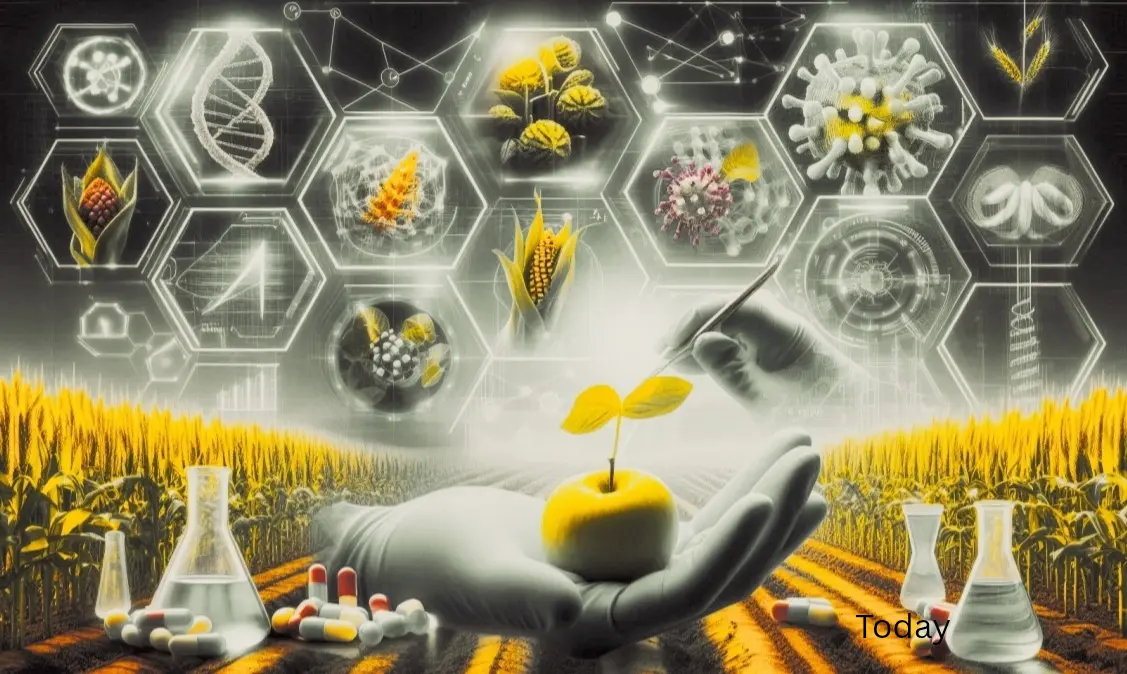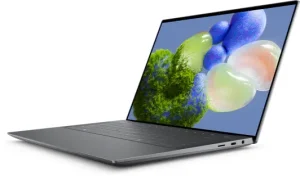Biotechnology is changing the future of farming
Biotechnology is changing the future of farming 🌾🌿
Biotechnology
The Biotechnology has become a key part of how modern farming has changed over time. Using biological systems, cellular processes, and genetic engineering, we can make crops that are stronger and more resistant to disease, yield more food, and use farming methods that are good for the environment and can fulfill the needs of a growing world population.
What is biotechnology in agriculture?
Genetic engineering, molecular markers, cell culture, and recombinant DNA technology are some of the scientific tools and methods used in agricultural biotechnology to change plants, animals, and microbes for use in farming.
The goal of these technologies is to:
Increase the amount of crops that grow
Make the food more nutritious
Make it harder for bugs, diseases, and bad weather to get in.
Less need for chemicals like fertilizers and pesticides.
Biotechnology in Agriculture: Uses
1.Crops that have been genetically modified (GM)
-
Biotechnology has made it possible to grow crops with good features, including
-
Pest Resistance: Bt corn and Bt cotton have genes from a soil bacteria called Bacillus thuringiensis that make a protein that is poisonous to some insects.
-
Herbicide Tolerance: Crops like soybeans and canola have been genetically modified to be able to handle certain herbicides. This makes it easier to control weeds and cuts down on the requirement for manual labor.
-
Drought and Salt Tolerance: Scientists have made crops that can survive very bad weather, which helps farmers deal with the effects of climate change.
-
Nutritional Enhancement: Golden Rice has more vitamin A in it to help fight malnutrition in poor countries.
2. Breeding Using Markers
-
This means utilizing molecular markers to choose plants with the features you want, which speeds up the breeding process and makes it more accurate. It speeds up the process of making new types of crops.
3. 🌱 Micropropagation and Tissue Culture
-
With tissue culture, you can quickly grow a lot of disease-free, high-quality plants. Tissue culture is used a lot on crops like bananas, pineapples, and orchids to make sure they grow evenly and quickly.
4. 🌿 Biopesticides and biofertilizers
-
Biotechnology lets us employ natural organisms instead of just artificial fertilizers and insecticides to
-
Put nitrogen back into the soil (for example, Rhizobium bacteria).
-
Keep pests and diseases from getting to plants (such Trichoderma and Bacillus subtilis).
Benefits of Biotechnology in Agriculture
-
More productive: More food per hectare, which means more people can be fed.
-
Fewer Chemicals Used: This means fewer toxic pesticides and fertilizers are used, which is good for the environment.
-
Lower costs of production: Less need for things like chemicals, water, and manpower.
-
Better Food Security: More stable and better food supply for populations who are expanding.
-
Adapting to Climate Change: Making crops that can grow well even when the weather is quite bad.
-
Better Health for Livestock: Vaccines and tests help animals deal with diseases better.
⚠️ Problems and disagreements
-
Even if it has tremendous benefits, agricultural biotechnology has a lot of problems to deal with
-
Concerns regarding the safety of GMOs: People are worried about the safety of genetically modified food.
-
Environmental Risks: There is a chance that genes could be passed on to wild species, which would reduce biodiversity.
-
Ethical Issues: Patents on biotech crops can make it hard for small-scale farmers to get the resources they need.
-
Regulatory Hurdles: Different rules around the world make it hard for everyone to use it.
🔮 The Future of Agri-Biotech
The future of farming is being shaped by cutting-edge biotech tools:
-
CRISPR-Cas9 for editing genes with great accuracy
-
Synthetic biology is the science of making new biological parts and systems.
-
Engineers make climate-smart crops that can live through changes in the environment.
-
Biotech and digital agriculture work together to make farming smarter and more data-driven.
-
To make agriculture more sustainable, make it more resistant to climate change, and make sure everyone has enough food, biotechnology is very important.
🧠 Last Thoughts
Using biotechnology in farming is a big step toward a smarter and more sustainable food system. It can provide farmers more power, safeguard the environment, and feed future generations if the correct policies are in place, people are aware of them, and ethics are taken into account.
Share this content:














2 comments